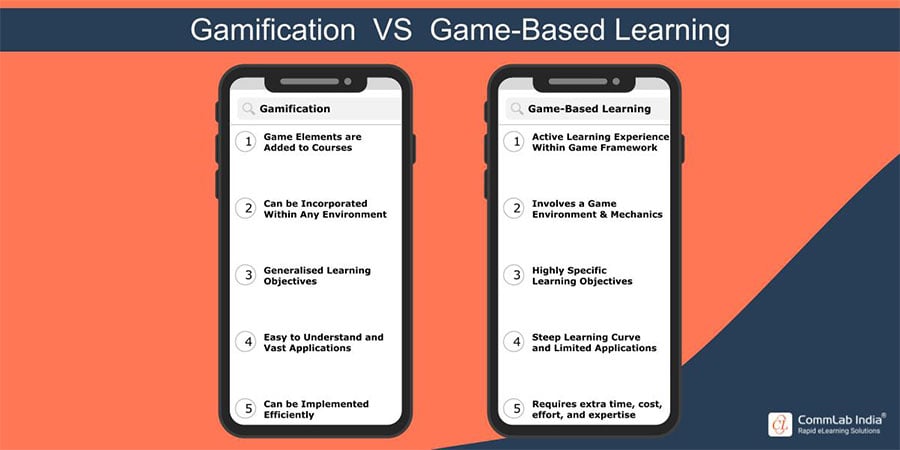Overcoming Challenges in Adopting eLearning Courses for Corporate Training

Alright, folks, gather ’round, because we’re about to dive into the wild and wacky world of corporate training! You know, that thing we all love to talk about while waiting in line for the office coffee machine? Yeah, that’s the one! eLearning is what we are about to discuss. It offers the flexibility, accessibility, and cost-effectiveness necessary to upskill a workforce and drive organizational success. However, despite the numerous benefits, the adoption of eLearning courses for corporate training is not without its challenges. In this blog, we will explore the common hurdles faced by organizations and the strategies they can employ to overcome them.
Are you Considering to Adopt eLearning for your Corporate Training?
Here are a few trends associated with it –
- Artificial Intelligence and Personalized Learning Paths
- Gamification
- Virtual Reality (VR) and Simulations
- Microlearning
Read to explore a few challenges associated with its adoption and how you can overcome them.
Common Challenges in Adopting eLearning Courses for Corporate Training
A. Technological Barriers and Infrastructure Limitations
One of the primary challenges faced by organizations is the need for robust technological infrastructure to support eLearning initiatives . Insufficient bandwidth, outdated hardware, and compatibility issues can hinder the seamless delivery of eLearning content to employees, leading to frustration and disengagement.
B. Resistance to Change and Traditional Training Methods
Employees and management often show resistance to moving away from familiar, traditional training methods. Skepticism about the effectiveness of eLearning and fear of the unknown can stall adoption and impact the success of eLearning initiatives.
C. Cost Considerations and Budget Constraints
Implementing eLearning courses may require a significant upfront investment in technology, content development, and training resources. Organizations with limited budgets may find it challenging to justify these expenses, especially if they haven’t yet realized the potential returns on investment.
→ Download eBook Now: 32 eHacks to Jumpstart Your eLearning
D. Lack of Engagement and Motivation Among Employees
eLearning courses demand a higher level of self-discipline and motivation from employees compared to traditional instructor-led training. Without active engagement and enthusiasm from learners, the impact of eLearning on skill development and knowledge retention can be diminished.
E. Tracking and Assessing Learning Outcomes Effectively
Measuring the effectiveness of eLearning initiatives and tracking learning outcomes can be complex. Without proper assessment tools and data analysis, it becomes challenging to identify areas of improvement and optimize future training efforts.
Strategies to Overcome eLearning Adoption Challenges
A. Investing in the Right eLearning Platform and Technology
Choosing a proper eLearning authoring tool and a suitable eLearning platform that aligns with the organization’s needs is crucial. An intuitive interface, robust features, and scalability are essential factors to consider. Additionally, conducting a thorough technology audit beforehand can help address potential infrastructure limitations. Here are a few popular authoring tools to begin with –

B. Conducting Thorough Training and Support for Employees
Providing comprehensive training and support to employees is key to easing the transition to eLearning. This includes educating them on the benefits, demonstrating how to use the platform effectively, and addressing any concerns they may have. After all, its quite necessary to ensure digital fluency among employees for a seamless eLearning experience.
C. Demonstrating the Value and Benefits of eLearning to Stakeholders
To gain support from key stakeholders and decision-makers, it’s essential to present a compelling case for eLearning adoption. Highlighting the potential cost savings, improved learning outcomes, and flexibility for employees can sway opinions in favor of eLearning.
D. Optimizing eLearning Courses for Maximum Engagement
Creating interactive and engaging eLearning content is vital for maintaining employee interest and motivation. Utilizing multimedia elements, gamification, and scenario-based learning can enhance the overall learning experience and make it more enjoyable.
E. Implementing Data-Driven Assessments for Tracking Progress
Leveraging learning analytics and data-driven insights can help assess the effectiveness of eLearning courses accurately. These metrics provide valuable information about employee performance, knowledge gaps, and areas that require improvement.
F. Promoting a Culture of Continuous Learning and Development
Fostering a culture that emphasizes continuous learning and development can encourage employees to embrace eLearning as a means of self-improvement and career advancement. Recognizing and rewarding learning achievements can further motivate learners.
Future Trends in eLearning for Corporate Training
A. Artificial Intelligence and Personalized Learning Paths
Artificial Intelligence (AI) is not just a buzzword; it’s revolutionizing how organizations deliver training to their employees. Advancements in AI are enabling the creation of personalized learning paths for individual employees. AI-driven algorithms analyze learner behavior and preferences to deliver tailored content, optimizing the learning experience and knowledge retention. AI can identify knowledge gaps, assess learning styles, and recommend the most suitable courses for each employee. This means Bob from HR can focus on developing his negotiation skills while Alice from Marketing dives deep into social media marketing – all in the same eLearning platform.
B. Gamification and How It Enhances Engagement in Corporate Training
Calling all gamers and game-changers! Gamification is injecting some serious fun and excitement into corporate training. Remember those childhood days when you played games and earned badges for your accomplishments? Well, imagine bringing that spirit of competition and reward to the world of learning. In gamified eLearning courses, employees can earn points, badges, and rewards for completing modules, achieving learning milestones, or mastering specific skills. Gamification (Don’t confuse it with game-based learning) taps into employees’ natural inclination for competition and achievement, driving engagement and motivation like never before.

C. Virtual Reality (VR) and Simulations for Immersive Training Experiences
VR is not just for gamers; it’s rapidly becoming a game-changer in corporate training. Imagine trading the traditional classroom setup for a virtual world where employees can practice real-life scenarios without real-life consequences. VR and simulations are transforming corporate training by providing immersive and practical learning opportunities. With VR, employees can immerse themselves in lifelike simulations, from handling complex machinery to dealing with difficult customers. It’s a safe and engaging environment where mistakes are welcomed, learning is dynamic, and confidence soars.
D. Microlearning and Its Impact on Employee Knowledge Retention
Microlearning, with its bite-sized content, is gaining popularity in corporate training. Think of it as the ‘Snapchat’ of corporate training – short, sweet, and to the point. By breaking down complex topics into digestible modules, microlearning makes learning more engaging and accessible for busy employees. Whether it’s a two-minute video on customer service tips or a fun interactive quiz during a coffee break, microlearning fits right into employees’ busy lives. Plus, the research shows that short and focused bursts of learning lead to better knowledge retention.
Parting Thoughts!
Adopting eLearning courses for corporate training is a powerful strategy for staying competitive in today’s dynamic business landscape. By understanding and addressing the challenges associated with eLearning adoption, organizations can create a successful and sustainable learning culture. Through the right investments in technology, employee support, and data-driven assessment, eLearning can transform corporate training, ensuring continuous skill development and driving long-term success. If you wish to check out various eLearning hacks to enhance your corporate training, here’s an eBook you shouldn’t overlook.





![How to Create Quick Microlearning Courses using Rapid eLearning [Infographic]](https://blog.commlabindia.com/hubfs/Imported_Blog_Media/microlearning-development-rapid-elearning-info.jpg)